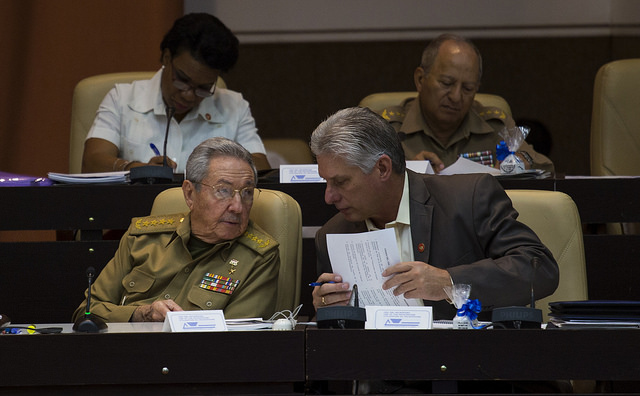
CUBA STANDARD — Citing delays in the electoral process caused by Hurricane Irma, the National Assembly during its year-end session postponed the selection of Cuba’s next president from Feb. 24 to April 19, the most visible step in the handover of power to a younger generation.
The decision came after the Council of State and President Raúl Castro suggested a postponement to the parliament. Citing the constitution, the National Assembly agreed that a new parliament won’t be constituted until April 19, the day celebrating the defeat of a U.S.-backed invasion force of exiles at the Bay of Pigs, known as the Victory of Playa Girón in Cuba. The same day, the new assembly will vote on a new Council of State as well as the Council’s new president, who is also the president of the nation.
The process leading to the investiture of the president is very indirect, with the president being elected by the Council of State, which in turn is elected by the National Assembly of Popular Power, only half of whose members are directly elected by Cuban voters.
The political handover is happening at an economically vulnerable moment, with Cuba struggling to re-emerge from recession amid $13 billion in damages by Hurricane Irma, worsening relations with the United States, and deepening troubles in Venezuela. During his end-of-session speech, Castro told the parliament that there has been a “serious and gradual deterioration in relations with the United States that cannot be blamed on our country”.
The delay notwithstanding, Raúl Castro assured Cubans he intends to step back as president.
“I want to ratify … the advisability of limiting to two five-year terms the exercise of the main posts in the nation,” Castro, 86, told the parliament in his closing speech. “Consequently, when the National Assembly is constituted on April 19 of next year, my second and last term as head of state will have concluded, and Cuba will have a new president.”
First Vice President Miguel Díaz-Canel, 57, is expected to be Raúl Castro’s choice for next president. Castro is expected to continue for at least three years as first secretary of the central committee of the Communist Party, nominally the guiding force behind politics in Cuba.

